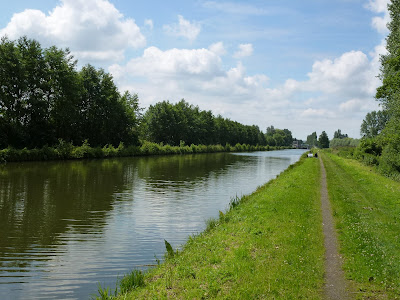98 years after the guns fell silent on the Western Front I find myself thinking of the 3500 US troops killed or wounded on that morning despite the fact that the generals knew that the armistice had been signed at 5am. The assaults on German positions continued right up to the designated 11am end to hostilities. Later, Congressman Fuller asked "Black Jack" Pershing if American lives had been "needlessly wasted" that morning.
Up at Compiegne, the German delegation had been startled by Foch's intransigence. His Gallic shrug and level stare was the response of a man who had seen his country bleeding to death over the course of the 4 years. "Tell these gentlemen that I have no proposals to make" he said, and waved them away.
No proposals, perhaps - but plenty of demands. German troops were to leave France, Belgium and Luxembourg. They were also to return Alsace Lorraine to France - that old wound had barely dried since the Franco Prussian War nearly 40 years back. France and its Allies were out to ensure that Germany would never be in a position to cause trouble again.
But as every History student knows, the severity of the peace treaty at Versailles did much to guarantee that there would be future conflict. It provided fertile soil for the growth of the Nazi Party in the succeeding decades, and the bitter crop was harvested in the self same railway carriage in Compiegne in 1940.
Those History students will be asking some big questions today.
They will see that we descended into World War in 1914 and 1939 because the world order was unstable, and it was challenged by ultra nationalists. Vast economic forces, barely understood at the time, caused tensions inside countries, and beyond their borders. These were exploited by political chancers who had little real understanding of the demons that they were unleashing on the world.
So - big questions...
Friday 11 November 2016
Friday 4 November 2016
Wilfred Owen
It was on this day - November 4th, 1918 - that the poet Wilfred Owen was killed leading his men in an attack across a canal near Ors. The war was in its final few days, and the 25yr old's parents took delivery of the dreaded telegram as the church bells were ringing out to celebrate the end to four years of hostilities. There is a link to his poems here - opinion may be divided as to how representative Owen was of the typical WW1 officer, but there can be no doubting the power of his verse, nor the extent of his influence on our own perception of the conflict. The poetry, he said, was in the Pity...
The canal bank nr Ors, where Owen was killed on Nov 4th 1918
The canal bank nr Ors, where Owen was killed on Nov 4th 1918
Subscribe to:
Posts (Atom)


